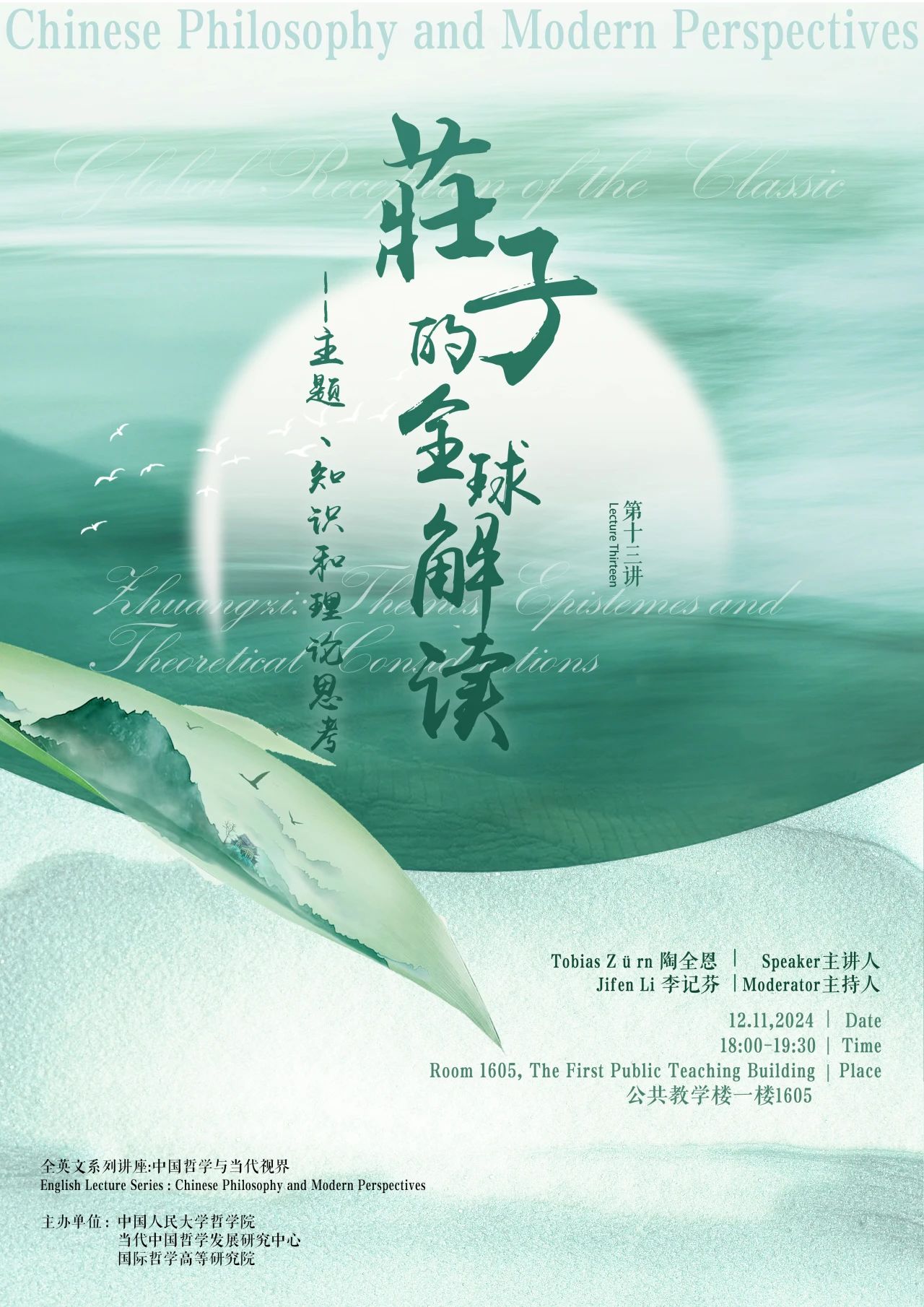预告·第十三讲|全英文系列讲座:中国哲学与当代视界·2024
日期:2024-12-09第十三讲
Global Reception of the Classic Zhuangzi: Themes, Epistemes and Theoretical Considerations
Lecture Thirteen:
《庄子》的全球解读——主题、知识和理论思考
Speaker主讲人:Tobias Zürn 陶全恩
Moderator主持人:Jifen Li 李记芬

Date日期: 12.11,2024
Time时间:18:00-19:30
Place地点:Room 1605, The First Public Teaching Building 公一1605
About the speaker:
Tobias Benedikt Zürn earned his Ph.D. in premodern Chinese studies (specialization: Chinese Religions and Literature) from the University of Wisconsin, Madison, and a Magister Artium in Sinology from the University of Munich. His research explores how academic disciplines project and perpetuate modern and Eurocentric concepts onto the past and non-Western societies, a process he calls “theoretical imperialism.” His first monograph Text/Bodies: The Huainanzi’s Construction as a Powerful Scripture of the Way reconstructs the earliest conceptualization of efficacious writings in East Asia. In addition, he is a co-founder of the international research project “Global Reception of the Classic Zhuangzi” that investigates the Daoist classic’s far-reaching influence and multimedia reception over the last two millennia. Among others, he has published his work in the Journal of Asian Studies and Early China, two flagship journals in their respective fields.
Abstract:
While turning his back on the king’s envoys, Zhuang Zhou turned down the offer to become a minister at the court of Chu, preferring to stay where he was and live like a turtle dragging its tail through the mud. However, his writings made a long journey through time and space, crossing the boundaries of various fields of intellectual and creative work.
To understand the phenomenon of “Zhuangzi”, one must leave the path of commentary tradition and book scholarship. The Ode to the Great Peng by the Tang poet Li Bai already put the Zhuangzi on the track of poetry, and paintings preserved in museums around the world today show the book’s fascination for artistic creation. As impressive as the phenomenon “Zhuangzi” is, it also poses a question for the understanding of intellectual history. How can this complexity of motifs and thought patterns be understood and how can it be treated and described in a scientifically appropriate way?
转载自:人大中哲全英文硕士CPRC微信公众号


